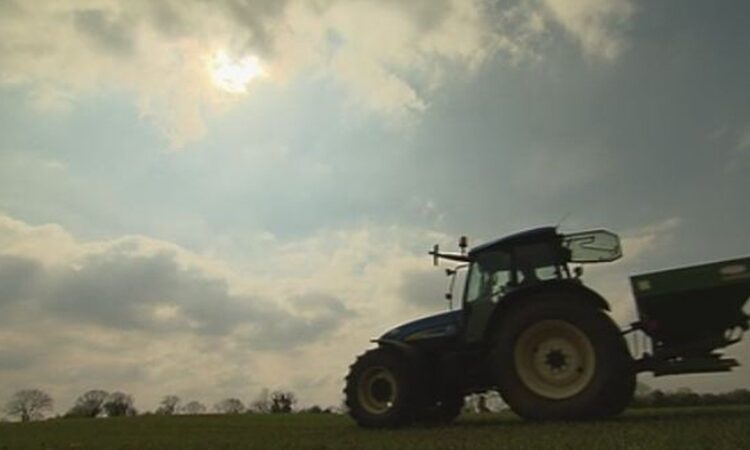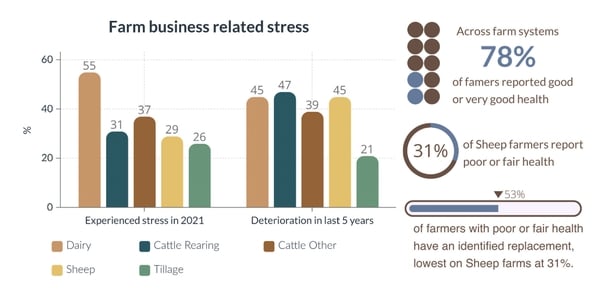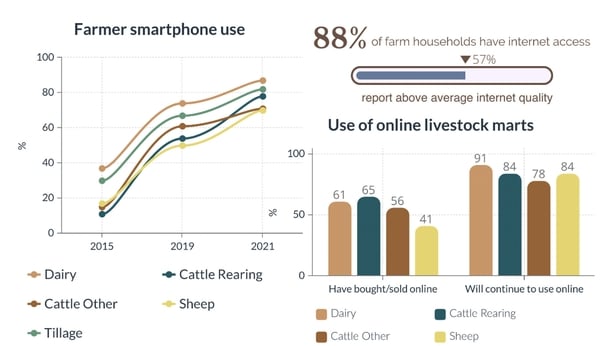
Analysis: the National Farm Survey shows how the social sustainability side of agriculture is changing
By Emma Dillon, Mary Brennan and Brian Moran, Teagasc
Sustainability is generally said to have three dimensions, namely economic, environmental and social. Much focus to date has been on the environmental aspects of sustainability, especially in terms of the impact of food production and its carbon footprint.
However, there is now increasing emphasis on the human element, or the social side of sustainability. This includes the quality of life and wellbeing of farm families, as well as wider societal issues around animal health and welfare and the future of rural areas.
In order to better understand how the social sustainability of agriculture is changing, we need to collect information on these issues. One way to do that is to engage directly with farmers and their families and Teagasc has being doing just that through its National Farm Survey for over 50 years. More and more, topics covered include social issues such as farmer wellbeing, farm succession, farm safety, community engagement and access to services.

Almost 40% of farmers across all farm types say that their farm business has been a source of stress in recent years and the situation is getting worse over time. The figure was highest amongst dairy farms, at more than half of respondents. The main causes of stress related to weather challenges, excessive workload and financial concerns. The recent expansion of the dairy sector in Ireland (since the removal of EU milk quota in 2015) may in some way explain this.
On a more positive note, 78% of farmers surveyed felt they had good or very good health. The figure was highest amongst tillage farmers and lowest amongst sheep farmers. On the other hand, between a quarter and a third of cattle and sheep farmers reported poor or fair health, compared to about one in ten dairy and tillage farmers, who tend to be younger on average.
It’s concerning that almost half of those reporting poor or fair health have no replacement farm labour. This seems to be a real issue on the ground, particularly in some regions where additional labour is in short supply, especially on dairy farms.
We need your consent to load this rte-player contentWe use rte-player to manage extra content that can set cookies on your device and collect data about your activity. Please review their details and accept them to load the content.Manage Preferences
From RTÉ Radio 1’s Countrywide, Macra na Feirme’s Elaine Houlihan and Niamh Farrell on the issue of farm succession
Online farming
Farmers are becoming more digitally connected, with a dramatic increase in smartphone use in recent years. Only one-fifth of farmers had a smartphone in 2015, but the figure rose to three-quarters in 2021. Similarly, there has been a steady rise in internet usage amongst farm households over the last ten years, with close to 9 out of 10 having internet access in 2021. In terms of internet quality, 57% report good/very good internet access, but the quality was reported to be poor/very poor on 15% of farm households across Ireland.
This increase in digital engagement amongst farmers has been particularly evident since the pandemic, demonstrated in particular by farmer use of online livestock marts. According to the survey, two-thirds of farmers watched marts online during the pandemic, with over half buying and selling in this way. 83% of those surveyed plan to continue doing so given the convenience for part-time farmers in particular.

The impact of Covid was also evident in terms of the reduction in the number of people farmers met on a daily basis. For example, half of sheep farmers surveyed in 2021 did not meet someone outside of their household on any given day, a doubling in this category compared to a few years previous. At the same time, one in 10 farmers reported only seeing someone from outside their household once a week. The situation has likely improved since then and the ending of lockdown restrictions.
As well as the need to better understand the environmental footprint of farming, consideration of its social sustainability is being increasingly recognised as important. Any assessment of the societal role of agriculture should take account of the people involved, especially in the context of a just transition whereby we will all need to change how we live and work.
The new Common Agricultural Policy emphasises a number of societal aims. These include strengthening the socio-economic fabric of rural areas, supporting generational renewal, preserving landscapes and biodiversity and maintaining food quality and animal health. Tracking progress in whether or not these aims are met requires the continued collection of socio-demographic data from farm families.
The National Farm Survey is conducted on approximately 900 farms annually and is representative of more than 85,000 Irish farms. The authors wish to thank the farmer participants and data recorders of the survey and the Teagasc Walsh Scholarship Scheme for facilitating this research
Dr Emma Dillon is Senior Research Officer in Agricultural Economics & Farm Surveys in the Rural Economy & Development Programme at Teagasc. Dr Mary Brennan is a Post-Doctoral Researcher in Agricultural Economics & Farm Surveys in the Rural Economy & Development Programme at Teagasc. Brian Moran is National Farm Survey Team Lead, Agricultural Economics & Farm Surveys in the Rural Economy & Development Programme at Teagasc.
The views expressed here are those of the author and do not represent or reflect the views of RTÉ






